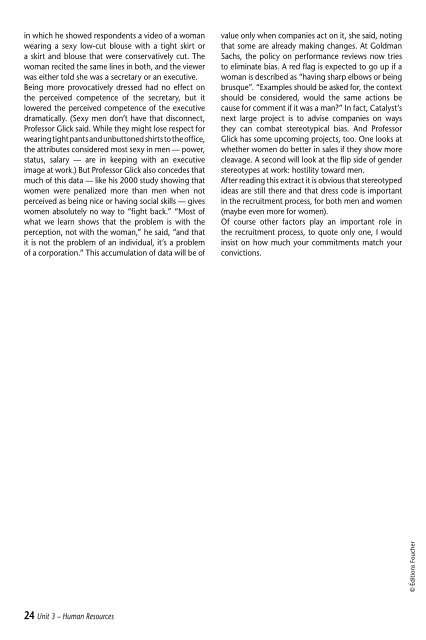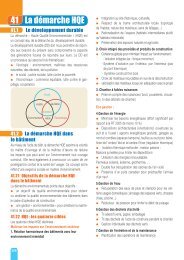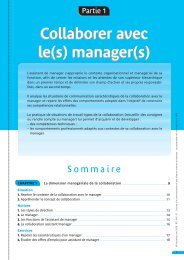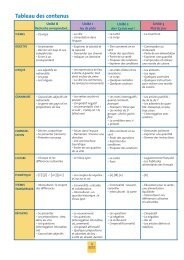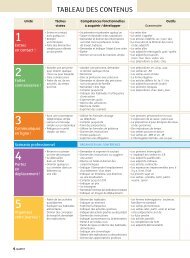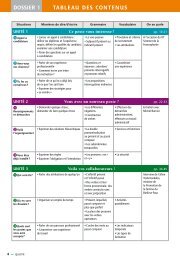GUIDE PÉDAGOGIQUE - Hachette
GUIDE PÉDAGOGIQUE - Hachette
GUIDE PÉDAGOGIQUE - Hachette
Create successful ePaper yourself
Turn your PDF publications into a flip-book with our unique Google optimized e-Paper software.
in which he showed respondents a video of a woman<br />
wearing a sexy low-cut blouse with a tight skirt or<br />
a skirt and blouse that were conservatively cut. The<br />
woman recited the same lines in both, and the viewer<br />
was either told she was a secretary or an executive.<br />
Being more provocatively dressed had no effect on<br />
the perceived competence of the secretary, but it<br />
lowered the perceived competence of the executive<br />
dramatically. (Sexy men don’t have that disconnect,<br />
Professor Glick said. While they might lose respect for<br />
wearing tight pants and unbuttoned shirts to the office,<br />
the attributes considered most sexy in men — power,<br />
status, salary — are in keeping with an executive<br />
image at work.) But Professor Glick also concedes that<br />
much of this data — like his 2000 study showing that<br />
women were penalized more than men when not<br />
perceived as being nice or having social skills — gives<br />
women absolutely no way to “fight back.” “Most of<br />
what we learn shows that the problem is with the<br />
perception, not with the woman,” he said, “and that<br />
it is not the problem of an individual, it’s a problem<br />
of a corporation.” This accumulation of data will be of<br />
24 Unit 3 – Human Resources<br />
value only when companies act on it, she said, noting<br />
that some are already making changes. At Goldman<br />
Sachs, the policy on performance reviews now tries<br />
to eliminate bias. A red flag is expected to go up if a<br />
woman is described as “having sharp elbows or being<br />
brusque”. “Examples should be asked for, the context<br />
should be considered, would the same actions be<br />
cause for comment if it was a man?” In fact, Catalyst’s<br />
next large project is to advise companies on ways<br />
they can combat stereotypical bias. And Professor<br />
Glick has some upcoming projects, too. One looks at<br />
whether women do better in sales if they show more<br />
cleavage. A second will look at the flip side of gender<br />
stereotypes at work: hostility toward men.<br />
After reading this extract it is obvious that stereotyped<br />
ideas are still there and that dress code is important<br />
in the recruitment process, for both men and women<br />
(maybe even more for women).<br />
Of course other factors play an important role in<br />
the recruitment process, to quote only one, I would<br />
insist on how much your commitments match your<br />
convictions.<br />
© Éditions Foucher


